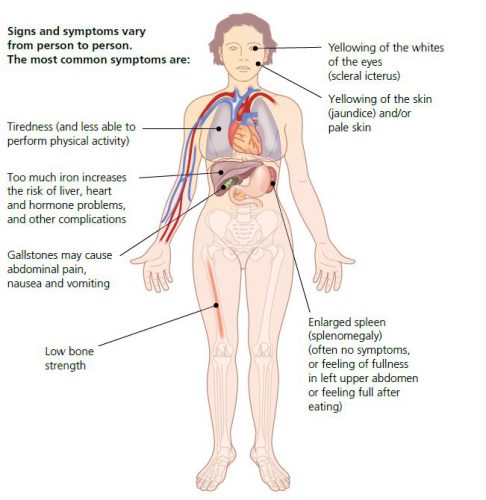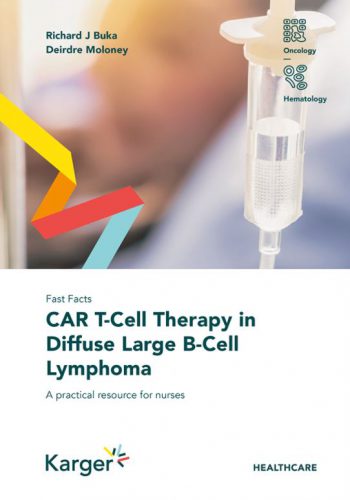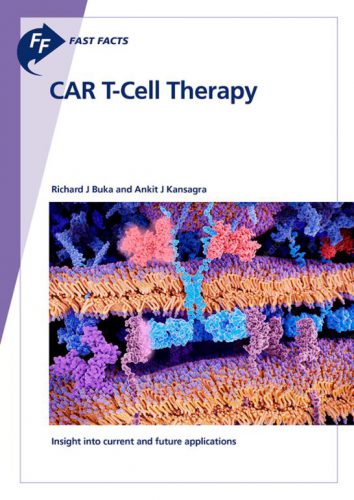Filling educational gaps is what the Fast Facts series does best, particularly in the rare disease space. So how do we do it?
You may be unfamiliar with pyruvate kinase deficiency (PKD). It is a rare inherited enzyme disorder that affects the glycolytic pathway used by red blood cells to generate energy, manifesting as hemolytic anemia. The symptoms vary greatly between individuals, making diagnosis difficult, and management primarily comprises supportive treatments.

Given the rarity of the condition, there was little available ‘published’ resources for clinicians and patients to access outside of traditional research papers. To help close the educational gap and raise awareness of this disease state, with the support of a medical educational grant Karger commissioned a suite of accessible book publications for both the patient and professional audience.
Engaging the Clinical Community
We reached out and brought together subject matter experts from the US and Europe to produce a balanced, multi-perspective, international overview of the disease state. For patient input and feedback, we used social media. Through this method we discovered that there was a globally active patient forum and as the result of our outreach they kindly provided us with some guidance about what their needs were with regards to content and education. The forum was very receptive to being involved in the development of these resources, especially given the lack of available information on the topic.
Our engagement with the group proved very useful particularly for the patient booklet as we were able to seek input and feedback from patients during the writing phase, which brought up some interesting insights, especially around the ‘level’ of the content i.e. the level of language used and what terminology to include. There was a consensus among some parties that the initial draft that we developed was too high-level for a patient audience. However, when we put the draft to the patient forum, they insisted that we don’t remove any of the technical information or water it down in any way. PKD being a life-long condition, they wanted a resource that gave them all the facts – a true reference guide. It was seen as a resource that they could use with their clinicians, particularly those with little or no knowledge of PKD, for example when visiting the GP to help explain their condition and provide them with a quick succinct overview.
Medical Language Deciphered in Plain English
The instruction from the forum to us was clear – translate the science.
Inevitably this is what we did, creating a highly illustrated workbook, with pull-outs and space to write notes, designed to help patients equip themselves with the best information about their condition to improve the conversations they have about it with their doctors and nurses. The success of this approach was underlined by British Medical Association Patient Information Awards committee – where the booklet received a ‘highly commended’ award.
Soon we found there was a demand from both clinicians and patients to have these materials available in local languages – which we duly delivered. We translated and published the booklets in Spanish, French, Italian and German and in doing so sought feedback from local experts and patients to ensure that material was relevant for the local audience.
Discoverability
A real plus point of engaging a medical publisher in the development of educational resources is that the resources are then ‘published’, in the sense they have an ISBN, making them truly enduring and discoverable from a range of platforms including Amazon and Google books.
With our free-of-cost model, access to Fast Facts materials has no limitation; both patients and clinicians can download resources for free. This in turn helps us to achieve maximum uptake and visibility, which again is particularly important for rare diseases. Interestingly, since we made Fast Facts free of charge, PKD has been one of the top 10 most downloaded resources from the Karger platform! Great for disease awareness, especially for rare conditions such as this one.
Want to know more about PKD or other diseases? Check out Karger’s collection of free Fast Facts materials.
With recent CAR T-cell therapy approvals in leukemia and lymphoma, there has been a lot of coverage in both traditional media and social channels about the successes of this groundbreaking new therapy. Specifically developed for each individual patient, CAR T-cell therapy is a complex and indeed risky procedure that involves reprogramming the patient’s own immune system cells, which are then used to target their cancer.
It has been shown in trials to cure some patients, even those with advanced disease where more conventional treatments have failed. However, while early data are promising, patients need to be aware that there is no guarantee that the treatment will work. It is therefore critical that healthcare professionals manage patient expectations so that they can make informed decisions about their care.
The Clinical and Patient Markets division at Karger publishes the free- to- access Fast Facts series, which seeks to address educational gaps in healthcare and improve the communication between the clinician and patient. As part of the development for a new clinical handbook in the Fast Facts series, experts Dee Moloney and Richard J. Buka discuss helpful strategies that healthcare professionals can utilize to manage patient expectations.
While these strategies are presented here in the context of CAR T-cell therapy, the principles can of course be easily transferred across many different disease states, particularly when managing patient expectations concerning innovative therapies.
Be Confident in Delivering Clear, Frank Discussions
Eligible patients and their caregivers need to be given a realistic picture of what to expect before treatment starts, including a clear explanation of what CAR T cells are and a frank discussion about:
- the benefits versus the risks
- how long the treatment process will take, and the steps involved
- what venous access/central venous access may be required
- the possibility of CAR T-cell manufacturing failure
- the likely side effects, their severity, and possible admission to ICU
- possible outcomes of treatment
- how long the patient will need to stay in hospital
- the level of caregiver support required (availability and proximity to treatment center)
- the practicalities of travel and accommodation during treatment
- the need for long-term (lifetime) follow-up
- the unknown long-term side effects, given the lack of long-term follow-up data
- the cost (if applicable)
Patients must be given time to digest information about the whole treatment process, and the information provided must be presented at a level that the patient can understand.
Engage With Your Patients – Ask Simple but Useful Open Questions
Showing compassion and empathy, asking open questions to engage the patient in conversation, and taking the time to listen are important interpersonal skills that healthcare professionals need to utilize before and during treatment and at follow-up consultations. Simple but useful open questions to ask include:
- How has your mood been?
- Is anything in particular worrying you right now?
- How are you coping?
- How do you think your partner/ family are coping?
- How do you feel about this treatment?
It is useful to ask family members and other caregivers these types of questions as well, and to gauge their understanding and expectations of the CAR T-cell treatment process.
Careful Planning for a Better Patient Experience
Assessing a patient’s understanding of the treatment process and managing their expectations can help to alleviate concerns for the patient and their family members. If the patient’s concerns are addressed early, then a tailored treatment plan can be put in place ahead of time. This may include the use of alternative medications to help manage uncontrolled symptoms, for example administration of anti-anxiety medications on the day, and referrals to specialist services for pain control and psychological support. Needle- and/or blood-phobic patients will require extra measures: for example, the apheresis team can advise the patient when they ‘can look’, and can hide needles, cannulas and blood in tubing from the patient’s line of vision.
Recognize the Importance of Psychological and Emotional Support
Both are important for the patient and their caregivers when preparing for, during and after CAR T-cell therapy. Although there is limited research, feedback from patient- reported outcome questionnaires have shown that patients experience increasing anxiety throughout the CAR T-cell therapy process, which is slow to alleviate problems even when they respond to treatment.
Specific fears reported by patients before CAR T-cell therapy include:
- the anxiety about having cells collected
- the severity of expected side effects
- the potential need for intensive care
- the possibility of the treatment not working
- the unknown recovery times from side effects
- the possibility of relapse after an initial response within the first year
Nurses especially, can provide much-needed support throughout the patient’s CAR T-cell therapy journey. Referrals for counseling or other psychological support may also be offered. For centers that have established protocols to enable outpatient monitoring, patients must be given access to a healthcare professional and an out-of-hours emergency contact number that can be used at any time, so that immediate review or emergency admission can be initiated by staff experienced with CAR T-cell therapy.
Further Reading
For further reading, please do take advantage of two free- to- access Fast Facts eBooks on CAR T-cell therapy, providing further insights, experiences, and expertise from field-leading practicing experts – Ankit J. Kansagra (USA), Richard J. Buka (UK) and Dee Moloney (UK).
Fast Facts: CAR T-Cell Therapy in Diffuse Large B-Cell Lymphoma – Karger Publishers

Fast Facts: CAR T-Cell Therapy – Karger Publishers





